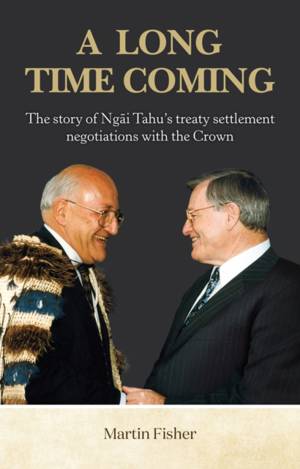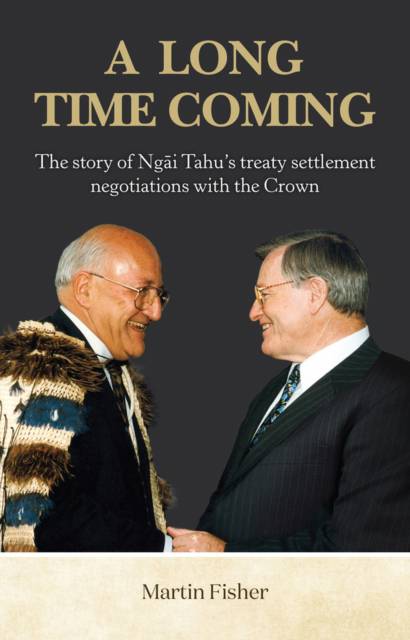
- Afhalen na 1 uur in een winkel met voorraad
- Gratis thuislevering in België vanaf € 30
- Ruim aanbod met 7 miljoen producten
- Afhalen na 1 uur in een winkel met voorraad
- Gratis thuislevering in België vanaf € 30
- Ruim aanbod met 7 miljoen producten
Zoeken
A Long Time Coming
The Story of Ngai Tahu's Treaty Settlement Negotiations with the Crown
Martin Fisher
Paperback | Engels
€ 37,95
+ 75 punten
Omschrijving
The Ngai Tahu settlement, like all other Treaty of Waitangi settlements in Aotearoa New Zealand, was more a product of political compromise and expediency than measured justice. The Ngai Tahu claim, Te Kereme, spanned two centuries, from the first letter of protest to the Crown in 1849 to the final hearing by the Waitangi Tribunal between 1987 and 1989, and then the settlement in 1998. The intense negotiations between the two parties, Ngai Tahu and the Crown, were led by Tipene O'Regan and the Minister of Treaty Negotiations Doug Graham. The Ngai Tahu team had to answer to the communities back home and iwi members around the country. Most were strongly supportive, but others attacked them at hui, on the marae, and in the media, courts, and Parliament. Graham and his officials, too, had to answer to their political masters. And the general public--interested Pakeha, conservationists, farmers, and others--had their own opinions. In this measured, comprehensive, and readable account, Martin Fisher shows how, amid such strong internal and external pressures, the two sides somehow managed to negotiate one of the country's longest legal documents.
Specificaties
Betrokkenen
- Auteur(s):
- Uitgeverij:
Inhoud
- Aantal bladzijden:
- 224
- Taal:
- Engels
Eigenschappen
- Productcode (EAN):
- 9781988503110
- Verschijningsdatum:
- 28/12/2020
- Uitvoering:
- Paperback
- Formaat:
- Trade paperback (VS)
- Afmetingen:
- 152 mm x 224 mm
- Gewicht:
- 439 g

Alleen bij Standaard Boekhandel
+ 75 punten op je klantenkaart van Standaard Boekhandel
Beoordelingen
We publiceren alleen reviews die voldoen aan de voorwaarden voor reviews. Bekijk onze voorwaarden voor reviews.











